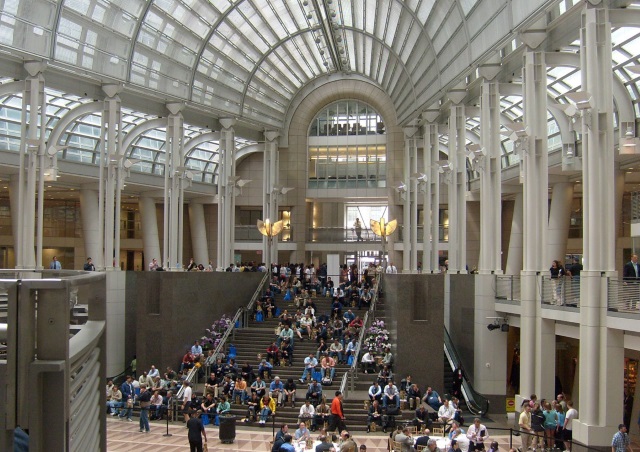 CAPS 2017
Complexity-Based
Analytics and
Policies for
Social Good
CAPS 2017
Complexity-Based
Analytics and
Policies for
Social Good
Organizer: The Journal for Policy and Complex Systems
Host: The Center for Complexity in Business, Robert H. Smith School of Business, UMD
Location: Ronald Reagan Building & International Trade Center, University of Maryland, Washington, DC
April 12 – 14, 2017
CAPS 2017 is the first International Conference on Complexity-Based Analytics and Policies for Social Good. This is a cross-disciplinary conference for research in which the tools of Complex Systems and/or Agent Based Modeling are used to examine a wide range of policies and procedures that promote, emphasize, contribute to, improve, or otherwise positively affect social good. This scope includes new definitions and measures of social good, methodologies for tracking impacts and trends, data sets, analytical methods, actors and populations, dynamic models, or social-level analysis.
Topics of modeling and simulation include, but are not limited to: • Economic Mobility • Access to Education • Access to Healthcare • Poverty • Justice and Fairness • Ecology • Dynamic Human Behavior • Human Factors • Digital Humanities • Socio-Economic & Financial Networks • Model Replication, Verification & Validation • Participatory & Human-in-the-Loop Simulations • Simulation Software & Computational Frameworks • Conflict Resolution & Cooperation • Coupled Human-Natural Systems • Diffusion of Innovations • Dynamics of Trust, Social Norms, Reputation & Opinion • Group Decisions & Collective Behaviors • Social Media • Retirement • Smart Cities • Social Networks • Public Policy • Digital Divide • Sustainability • Economy
Submission Format: Please submit papers of up to 10 pages
Submissions Due: October 31st, 2016
More details can be found at: https://complexity.uncc.edu/caps-2017
Program Committee: Nazmiye Bacaksizlar, University of North Carolina at Charlotte, USA; Riccardo Boero, Los Alamos National Laboratory, USA; Aaron Bramson, Riken Brain Science Institute, Japan; Ted Carmichael, TutorGen Inc, USA.Trevor Shaun Crawford, Los Alamos National Laboratory, USA; Dave Dixon, University of New Mexico, USA; Magda Fontana, University of Turin, Italy; Robert Geyer, Lancaster University, UK; Michael Givel, University of Oklahoma, USA; Marco Guerzoni, University of Turin, Italy; Mirsad Hadzikadic (Chair), University of North Carolina at Charlotte, USA; Liz Johnson, University of North Carolina at Charlotte, USA; Caroline Krejci, Iowa State University, USA; Ugo Merlone, University of Turin, Italy; Anu Miller, Cisco Systems, USA; Megan Olsen, Loyola University, USA; Mark Orr, Virgina Tech, USA; William Rand, North Carolina State University, USA; Pietro Terna, University of Turin, Italy; Elizabeth von Briesen, University of North Carolina at Charlotte, USA; Caroline Wagner, Ohio State University, USA; Asim Zia, University of Vermont, USA.